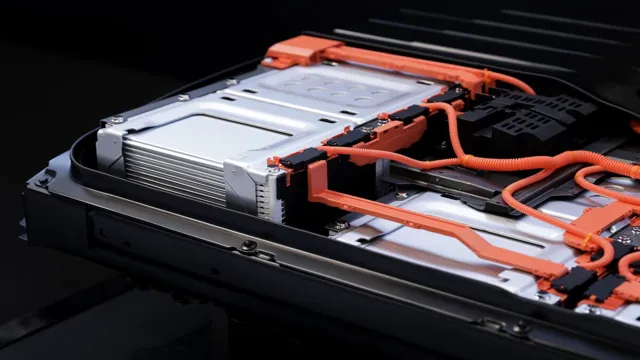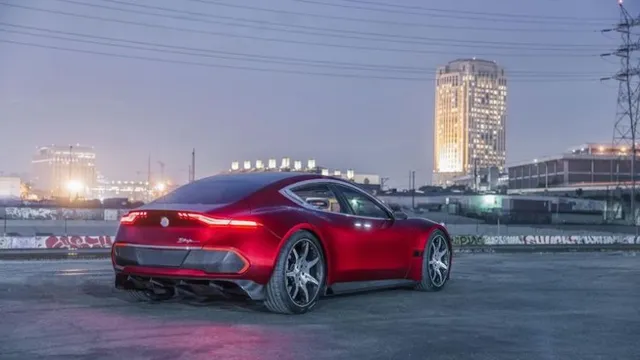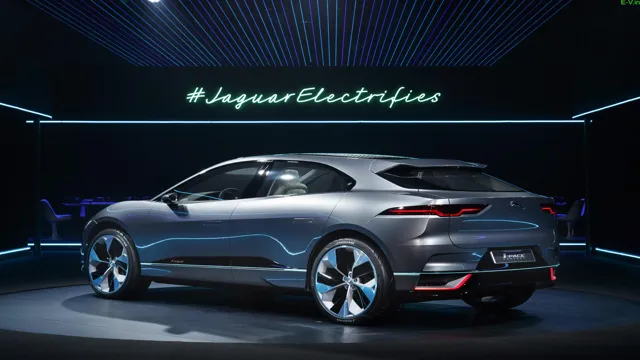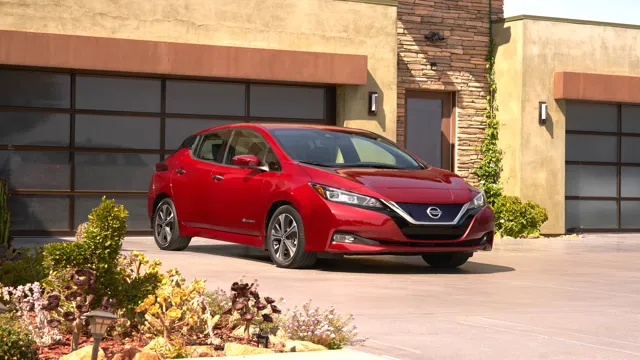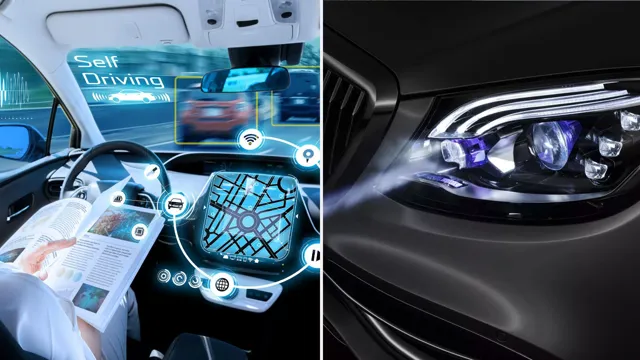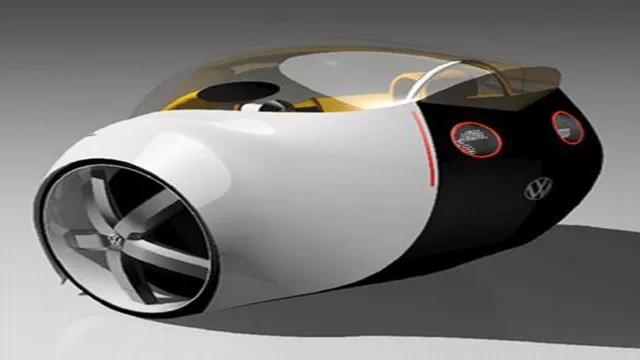Revolutionizing the Road: The Latest Electric Car Battery Technologies Explained
Have you ever wondered what the future of transportation will look like? Well, wonder no more! The rise of electric cars is changing the game on how we view transportation, and it’s happening right before our eyes! With the ever-growing concern for climate change and the increasing cost of gas, many car manufacturers are turning their focus toward creating electric vehicles. These vehicles are powered by rechargeable batteries that are designed to last for years, making them a more sustainable and practical option. In recent years, electric cars have become more accessible to the general public due to advancements in technology, increased availability of charging stations, and government incentives.
More and more people are starting to understand the benefits of owning an electric car, and it’s not just about saving money on gas. Electric cars also offer a smoother and quieter ride, require less maintenance, and reduce emissions that contribute to air pollution. Not only are electric cars benefiting the environment, but they are also changing the way we live and travel.
With a longer range on a single charge, electric cars are now suitable for longer road trips, and many hotels and restaurants are offering charging stations for their guests. Furthermore, many car manufacturers are introducing electric versions of their popular models, such as the Nissan Leaf, Chevy Bolt, and Tesla Model S, making it easier for consumers to switch to an electric vehicle. In conclusion, the rise of electric cars is revolutionizing the way we view transportation.
With their sustainable and practical features, electric cars are becoming more accessible to the general public and are quickly becoming the preferred mode of transportation. It’s not just a trend; it’s a lifestyle change that we should all consider for a better future.
Current Battery Technology
When it comes to electric car battery technologies, the current technology has come a long way, but it still has its limitations. The most common type of electric car battery is the lithium-ion battery, which provides a high energy density and is relatively lightweight. However, it has its limitations in terms of its capacity, which can result in a limited driving range.
To overcome this issue, several manufacturers are experimenting with solid-state batteries that use a solid electrolyte instead of a liquid electrolyte. Solid-state batteries have the potential to increase the energy density of the battery and improve its safety, resulting in a longer driving range. Another promising technology is the use of hydrogen fuel cells that use a chemical reaction between hydrogen and oxygen to create electricity.
This technology has the potential to provide a longer driving range than even the best lithium-ion batteries without the lengthy charging time required for electric vehicles. While these are all promising technologies, there are still obstacles to overcome, such as high costs and the need for extensive infrastructure. However, with continued research and development, the future looks bright for electric car battery technologies.
Lithium-Ion vs. Solid State Batteries
Current battery technology has resulted in two major types of batteries: lithium-ion and solid state batteries. While lithium-ion batteries have been the most commonly used in consumer electronics for over a decade due to their high energy density, they have several drawbacks. For one, they have the tendency to overheat and can even catch fire or explode if not properly handled or manufactured.
Solid-state batteries, on the other hand, are being developed as an alternative to lithium-ion due to their higher energy density and improved safety. These batteries utilize a solid electrolyte instead of a liquid one, which reduces the risk of combustion. While solid-state batteries are still in the development phase, it’s expected that they will revolutionize the battery industry with their improved energy storage capabilities and enhanced performance.
However, they come at a higher cost and production challenges. As battery technology continues to evolve, we can expect to see more advanced battery options in the future, with improved safety features, longer lifespans, and higher energy storage capabilities.
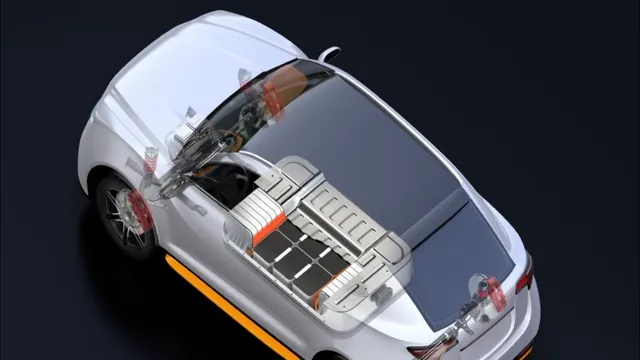
Pros and Cons of Each Technology
When it comes to current battery technology, there are both pros and cons to consider. One of the biggest advantages of current battery technology is its familiarity and wide-spread use. AA and AAA batteries, for example, are a ubiquitous part of our culture and are used in a wide range of devices from remote controls to handheld gaming systems.
They have a long shelf-life, are relatively inexpensive, and can be easily replaced. However, there are also drawbacks to current battery technology. For one, many types of batteries contain toxic chemicals that can be harmful to the environment when not disposed of properly.
Additionally, current battery technology has limited capacity and can only store a finite amount of energy. As more energy-hungry devices become more common, this limitation becomes more of an issue. Overall, while current battery technology has served us well for many years, it is worth considering alternative technologies to address these drawbacks and better meet our future energy needs.
Future Battery Innovations
Electric car battery technologies are constantly advancing, with researchers and engineers striving to create batteries that are more powerful and longer-lasting than ever before. One promising innovation currently being studied is solid-state batteries, which use a solid electrolyte instead of the traditional liquid one. This could help to prevent the risk of fires, reduce the weight of the battery, and potentially even increase its capacity.
Another area of research is the use of lithium-sulfur batteries, which are said to be able to offer almost double the energy density of traditional lithium-ion batteries. However, there are still challenges to be overcome in terms of stability and lifespan, making further development necessary. Other emerging solutions include flow batteries and graphene-based batteries, both of which also offer benefits in terms of energy density, safety, and sustainability.
As the demand for electric vehicles continues to grow, it’s likely that we will see even more exciting innovations in the world of battery technology emerge in future years.
Graphene Batteries
Graphene Batteries As technology continues to advance, battery innovations have been a major focus for researchers around the world. One of the most promising advancements in recent years is the development of graphene batteries. Graphene, which is a single layer of carbon atoms arranged in a honeycomb lattice, has been found to have incredible conductivity, durability, and flexibility.
These properties make it an ideal material to use in batteries that could have a longer lifespan and charge faster than traditional lithium-ion batteries. Graphene batteries also have the potential to be more environmentally friendly since they can be made from sustainable sources and have fewer harmful materials. While there is still more research to be done, graphene batteries represent an exciting step toward a more sustainable and efficient energy storage solution.
Lithium-Air Batteries
Lithium-air batteries are a promising innovation in the world of batteries and have the potential to revolutionize the industry. They rely on the reaction between lithium and oxygen to produce electricity, which means that they can be much lighter and more energy-dense than traditional lithium-ion batteries. However, there are still some challenges that need to be overcome before lithium-air batteries can become a practical source of power.
One of the main issues is that they tend to degrade quickly, which can reduce their effectiveness. Another issue is that they can be difficult to recharge, which means that they may not be suitable for certain applications. Nonetheless, researchers are continuing to work on lithium-air batteries, and there is hope that they will be able to overcome these obstacles and bring this innovative technology to market in the near future.
Sodium-Ion Batteries
Sodium-Ion Batteries As the demand for electric vehicles and grid storage continues to grow, people are looking for more efficient, cost-effective, and eco-friendly battery options. That’s where sodium-ion batteries come into play. Unlike traditional lithium-ion batteries, these batteries use sodium ions instead of lithium ions to store and release energy.
Not only is sodium more abundant and cheaper than lithium, but it also allows for higher energy density, longer cycle life, and faster charging times. While there are still some technical challenges to overcome, such as improving the electrode materials and addressing safety concerns, sodium-ion batteries show immense promise for the future of battery innovations. With the potential to revolutionize the energy storage industry, the development of sodium-ion batteries could mark a major turning point in our efforts to build a sustainable future.
Impact on the Environment
When it comes to electric car battery technologies, one of the key benefits is its positive impact on the environment. Compared to traditional gas-powered vehicles, electric cars emit significantly less greenhouse gases, which contribute to climate change. Additionally, the production of electric car batteries has become more sustainable over the years as companies have started using recycled materials, reducing waste, and implementing more energy-efficient manufacturing processes.
This helps to conserve natural resources and reduce the environmental impact of producing these batteries. While electric cars are not a perfect solution for reducing our carbon footprint, the development of better battery technologies is crucial in mitigating the negative effects of transportation on our planet.
Recycling and Sustainability
Recycling has a profound impact on the environment, and it is essential to understand how it helps preserve our planet. Every day, we generate tons of waste that ends up in landfills, which contribute to pollution and environmental degradation. However, by recycling, we can reduce the amount of waste and save natural resources.
Recycling helps to conserve energy, as it takes less energy to produce new products from recycled materials than from virgin materials. Additionally, recycling reduces greenhouse gas emissions, which contribute to climate change. By recycling, we can also reduce the need for landfill space, which can be used for other purposes.
It is crucial to make a conscious effort to recycle, as it can significantly impact the environment and contribute to a more sustainable future for generations to come.
Reducing Carbon Footprint Through Electric Cars
Electric Cars Electric cars are hailed as the future of transportation because of the significant positive impact they can have on the environment. One of the major ways they can achieve this is by reducing carbon emissions. Compared to traditional gasoline-powered cars, electric cars emit zero greenhouse gases or tailpipe emissions.
This means that electric cars can help reduce the amount of harmful gases released into the atmosphere that contribute to climate change and air pollution. Additionally, electric cars are powered by renewable sources of energy such as solar and wind power. Charging stations powered by these sources can be set up in homes, businesses, and public areas, which further reduces the reliance on non-renewable fossil fuels.
The adoption of electric cars can bring about a significant reduction in greenhouse gas emissions, helping to create a cleaner, healthier, and more sustainable planet for generations to come.
Final Thoughts
In the world of electric cars, battery technology is everything. It determines range, charge times, and overall performance. And in recent years, there has been a lot of progress made in developing new and better electric car battery technologies.
One of the most promising advancements is in solid-state batteries. These batteries use solid electrolytes instead of liquid ones, which can lead to faster charging, longer ranges, and improved safety. Another exciting development is in recycling technologies that can recover valuable materials from old batteries and reuse them in new ones.
This not only benefits the environment, but it can also reduce the cost of producing electric car batteries. Overall, with these new advancements, electric cars are becoming more practical and accessible than ever before.
Conclusion
In conclusion, electric car batteries represent the future of sustainable transportation. With constant advancements in technology, these batteries are becoming more affordable, efficient, and eco-friendly. From lithium-ion to solid-state, the possibilities for electric car battery technologies are endless.
One thing is for certain, driving an electric car is not only financially beneficial, but also a conscious effort towards reducing our environmental footprint. So why stick to gas-powered cars when the future is electrically charged?”
FAQs
What are the different types of electric car battery technologies available in the market?
There are several types of electric car battery technologies available in the market, including lithium-ion, lead-acid, nickel-metal hydride, and solid-state batteries.
How does the lithium-ion battery technology used in electric cars work?
Lithium-ion battery technology works by using lithium ions to carry electric charge between the battery’s two electrodes. When the battery is charging, the lithium ions move from the positive electrode to the negative electrode, and when the battery is discharging, the ions move back to the positive electrode.
What are the advantages of using solid-state batteries in electric cars?
Solid-state batteries are more energy-dense and have a longer cycle life compared to conventional lithium-ion batteries. They are also safer, as they are less prone to thermal runaway and do not use flammable electrolytes.
How do electric car battery technologies impact the environment?
The environmental impact of electric car battery technologies depends on several factors, such as the materials used, the manufacturing process, and end-of-life disposal. Some battery materials like cobalt and nickel are highly toxic, and their extraction and processing can result in environmental damage. However, electric car batteries are generally considered to have a lower environmental impact compared to traditional fossil fuels.
